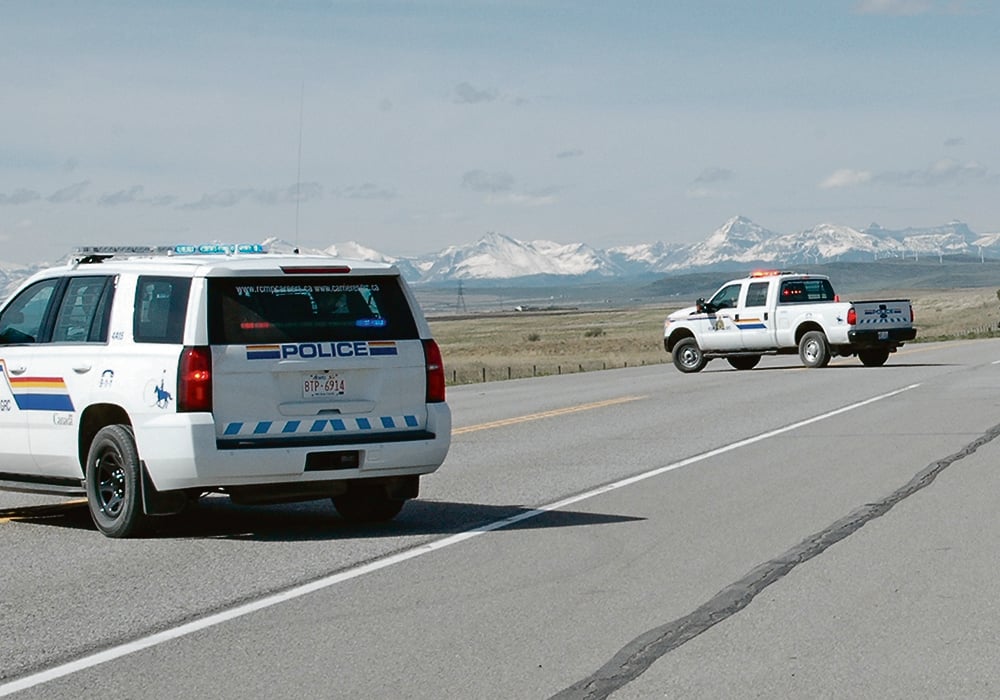Federal government has told communities policed by national force that it won’t cover salary increases and retroactive pay
The federal government’s decision not to cover salary increases and retroactive pay for the RCMP will impact Alberta communities that were left out of contract negotiations with the force, said a municipal leader.
The decision was revealed in the recent federal budget, said Cathy Heron, president of Alberta Municipalities and mayor of St. Albert.
“This will have an immediate impact on our members who contract the RCMP as their municipal police service,” she told the association’s recent Spring Municipal Leaders’ Caucus in Edmonton.
Read Also

VIDEO: Case IH reveals new Optum tractor at Agritechnica 2025
Case IH reveals its new Optum tractor at Agritechnica 2025.
“The federal government has advised that they will be sending out letters of notification as well as the invoice for amounts owing… and I’ve heard that some have already received their bills.”
However, she asked municipalities to wait before paying Ottawa while putting pressure on federal officials through the media and by lobbying MPs to reverse the government’s decision not to cover the increases.
“We do have two years — that’s until March 31 of 2025 — to pay these invoices.”
Although the amounts owed would be considered a rounding error for a federal government that routinely deals with billions of dollars, it will pull money out of municipalities that’s needed for local resources and services, said Paul McLauchlin, president of the Rural Municipalities of Alberta.
The collective bargaining agreement was reached in 2021 and covers six years starting April 1, 2017, for about 20,000 officers across Canada. The Federation of Canadian Municipalities estimated last year that communities such as Cochrane near Calgary could face a bill as high as $1.3 million for retroactive pay, with Brooks potentially paying $700,000, which is equivalent to a tax hike of 5.5 percent.
The total bill across Alberta for retroactive pay was estimated at $80 million.
“Right now, municipalities are starting to gather what those numbers are, and then our hope is just to have an indication and see what the impact is because it’s not what people thought it was before,” said McLauchlin.
Heron said municipalities containing less than 5,000 people that are served by the RCMP under the Provincial Police Service Agreement will have the same costs as those established under a police funding model established in 2020. “However, this model expires next year, and we’re not sure what the new model will look like.”
The Alberta government has indicated they will begin an engagement session this year with municipal leaders on the new model, said Heron.
“So, we can look forward to ongoing discussions on policing costs. I know it’s a favorite topic for all of us, especially a few of my board members.”
McLauchlin said Ottawa’s lack of consultation is not an argument in favour of the Alberta government creating a provincial police force, which provincial officials have said would provide more local input and control. The only similarity would be if the provincial government unilaterally imposed the force on Albertans, he said.
He has heard estimates the proposed Alberta police force could cost as much as $1.6 billion, including infrastructure ranging from new detachment offices to a forensics laboratory. The RMA has asked the Alberta government for a provincial referendum on the issue.
McLauchlin estimated about 95 percent of rural municipalities won’t necessarily be directly affected immediately by the RCMP pay hikes.
“But we’re all affected indirectly, and so it’s quite frustrating because quite literally, the federal government negotiated a pay deal and it took them 10 years from the beginning to the end — they were 10 years late — to ultimately come up with a deal with the officers.”
Heron spoke to delegates on March 31, the same day the RCMP’s collective agreement expired.
“Negotiations on a new contract are underway, and while the Treasury Board of Canada has advised that the financial impacts from this new contract are expected to be minimal compared to the previous agreement, they have not shared any estimates to date.”
RCMP officers were previously paid “terribly low compared to any other competing jurisdictions across Canada,” said McLauchlin. “They definitely were due for a raise, but again, it’s going back to the way with which this was just so poorly handled and executed just at the contract negotiation stage.”
Heron said Prime Minister Justin Trudeau announced in 2020 that body-worn cameras would become a national standard for general duty officers in the RCMP. The force is working with Motorola to provide a subscription-based management services contract, she said.
Although the federal government is covering the costs for the implementation and rollout of the project, RCMP contract partners will be billed around $3,000 per frontline member starting April 1, 2024, she said.
















